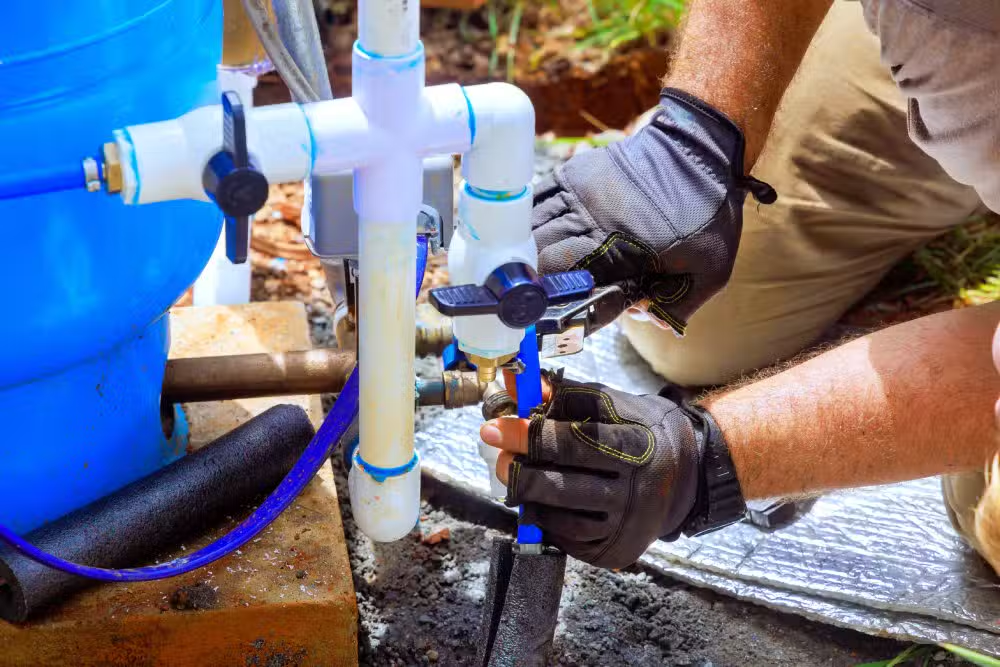Winterization is a common topic surrounding several water-related features of our properties as we head into the colder parts of the year, and any water well pump on your property is a great example. What should be done to winterize well pumps, and why is this important in places like Utah that get very cold during the winter?
At Mike Zimmerman Well Service LLC, we’re proud to offer a variety of water well services to clients around Utah, including services to help clients winterize well pumps (and various other well pump solutions). Here are some of the reasons why it’s so important to winterize well pumps, plus the basic process we’ll follow and some general tips for maintenance of your pump and well system throughout the winter.
Possible Consequences of Frozen Pumps
If you do not winterize your well pump before the freezing weather hits, you risk it freezing during the cold winter. This carries several possible consequences you don’t want to deal with, including:
- Lack of water supply: When a well pump freezes, it cannot pull water from the ground, meaning you will have little to no water supply until it thaws.
- Damage to pump components: The freezing temperatures can cause damage to various parts of your well pump, including pipes, valves and fittings. This will require costly repairs or replacement.
- Risk of bursting pipes: If the frozen pump causes pressure to build up in your pipes, they may burst and cause even more damage.
- Costly repairs: As mentioned, repairing or replacing a frozen well pump can be expensive. This is especially true if the damage extends beyond just the pump and affects other components of your water system.
- Inconvenience: A frozen well pump can cause major inconvenience as you will have to find alternative sources of water until it is fixed. This could mean hauling water from elsewhere or relying on bottled water for drinking and cooking.
- Health risks: Without access to clean running water, you may be at risk for various health issues such as contamination from using alternative sources of water or lack of proper hygiene practices.
To prevent these problems, it is important to take preventative measures before freezing temperatures arrive.
Process of Winterizing Well Pumps
While this may vary somewhat depending on the individual pump and property, here are the basic steps our team will take when we assist clients with winterizing well pumps:
- Power turn-off: If you have a submersible well pump, we will start by shutting off the power. In addition to unplugging it from its electricity source, we will also turn off the circuit breaker that supplies its energy.
- Drain water lines: Next, our team will work to drain all of the water out of your well pump’s pipes and holding tank. To do this, we may use compressed air or other specialized tools.
- Remove pressure switch: Our technicians will detach your well pump’s pressure switch so they can completely drain any remaining water out of the system. With some models, we may need to remove additional parts as well.
- Insert antifreeze: In some cases, especially in regions with colder climates, we may recommend adding antifreeze to your well pump system. This will help prevent any remaining water from freezing and causing damage during the winter months
- Cover and protect: Before leaving your property, our technicians will make sure to cover and protect your well pump system to shield it from harsh weather conditions or debris. This may include using waterproof covers or sealing off any exposed parts.
Cold Weather Well Maintenance Tips
Even once your well pump has been properly winterized, there are a few other steps you can take to ensure both the pump and your overall well stay in good condition during the colder months. Here are some additional tips for maintaining your well system during the winter:
- Keep an eye on the water level in your well. If you notice a drop, it could mean there is a leak or damage to your system that needs to be addressed.
- Check for any signs of freezing, such as ice buildup or reduced water flow. This could indicate a problem with your pump or pipes that should be addressed immediately.
- Insulate any exposed pipes or parts of your well system to prevent freezing and potential damage.
- If temperatures are expected to drop below freezing for an extended period of time, consider running a small trickle of water from the faucets connected to your well. This can help prevent frozen pipes and keep your system functioning properly.
At Mike Zimmerman Well Service LLC, we’re proud to offer the best well pump and other water well services on the market, including with pump winterization. Contact us for these or other well services around Utah!


